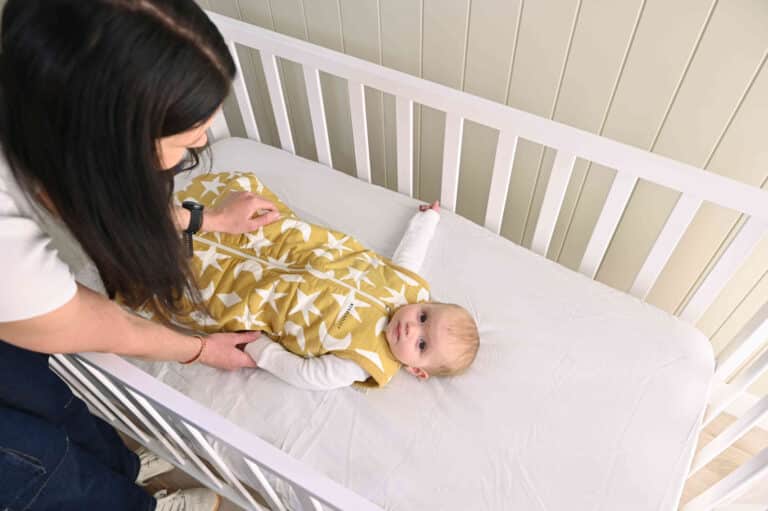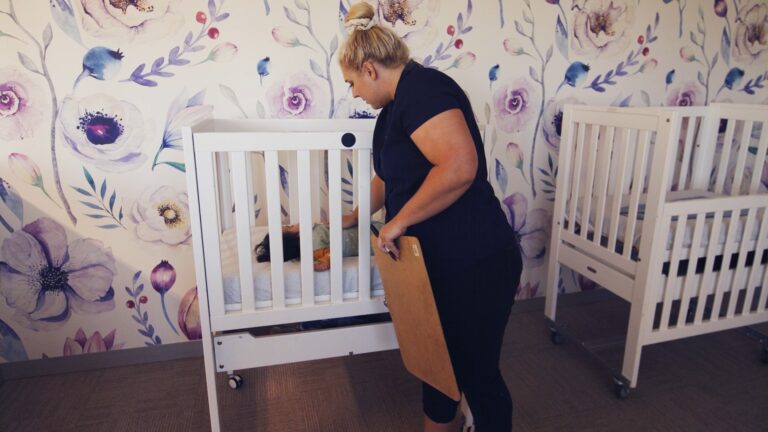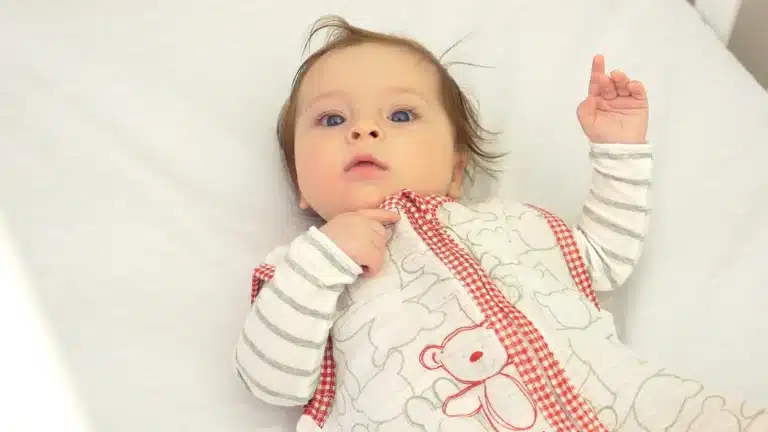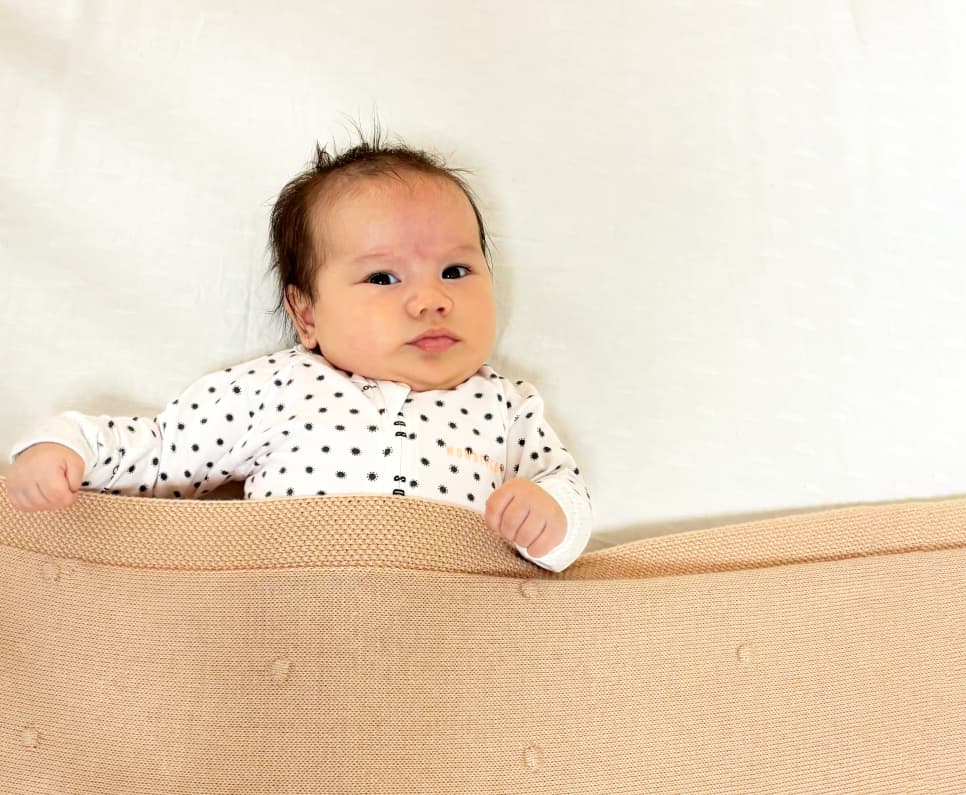No, it is unsafe for your baby’s face or head to be covered.
Why It’s Important Not to Put My Baby to Sleep with Their Face or Head Covered
Babies should always be placed to sleep with their head and face uncovered. Covering your baby’s head or face during sleep significantly increases the risk of Sudden Unexpected Death in Infancy (SUDI), including sudden infant death syndrome (SIDS).
Why uncovered is safer
When a baby’s face or head is covered, it can:
- Block or restrict airways, reducing oxygen intake
- Cause rebreathing of the same air, which increases carbon dioxide exposure and reduces oxygen levels
- Lead to overheating, which is a known risk factor for SIDS
- Increase the risk of suffocation, smothering, or asphyxia
- Create hazards such as strangulation or entrapment if items like headbands, ribbons, or loose fabrics are present
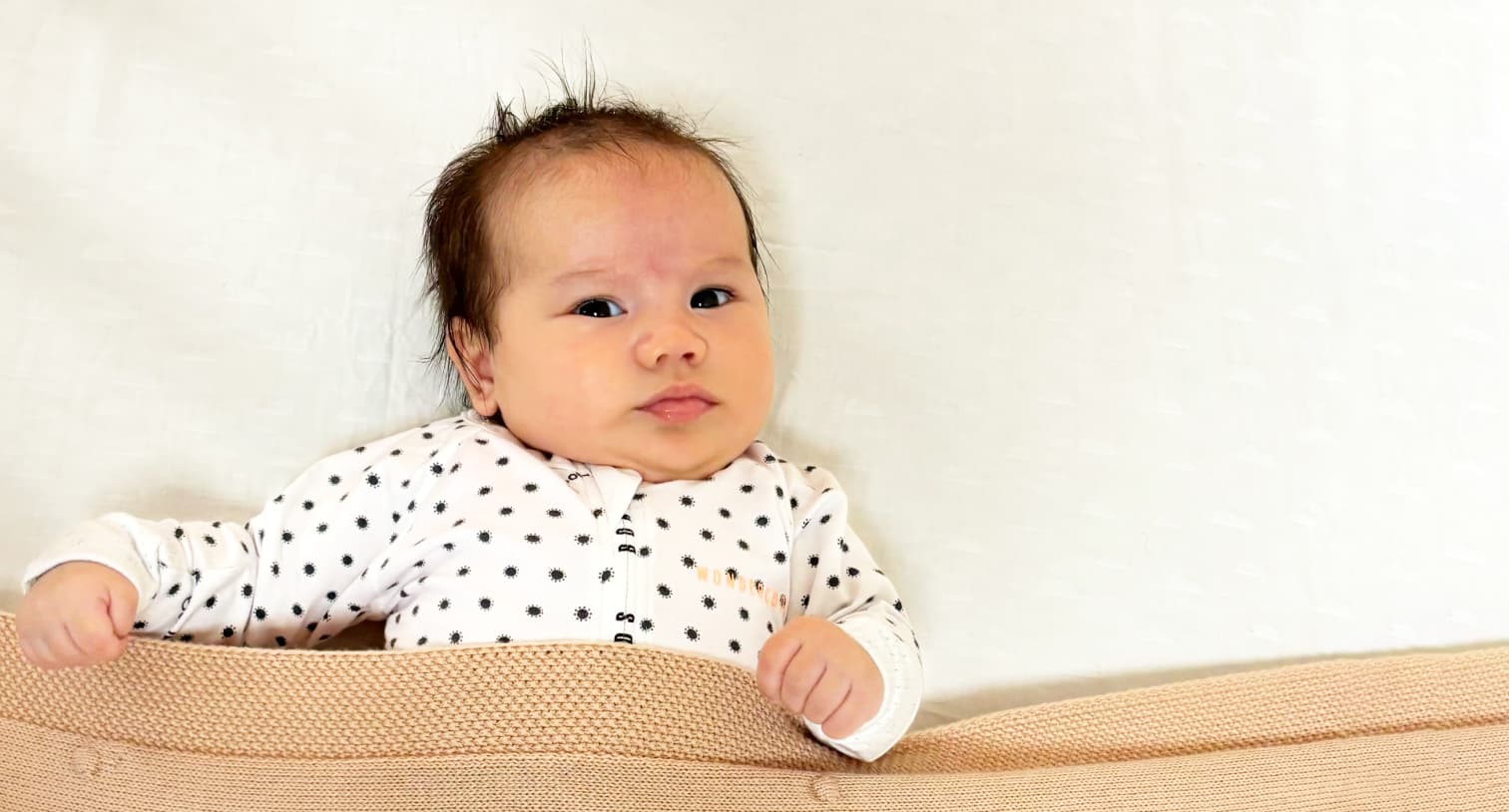
Babies control much of their body temperature through their face and head. For this reason, it’s essential to keep their head and face uncovered for every sleep.
Safe ways to keep baby comfortable
- Dress baby in light sleep clothing suitable for the room temperature.
- Place baby on their back to sleep with their feet at the bottom of the cot to stop them wriggling down under the blankets.
- If using blankets, make sure they are tucked in firmly and only reach up to the chest.
- Consider a safe sleeping bag instead of blankets. Choose one with:
- a fitted neck and arm holes
- arms free
- no hood
- an appropriate TOG rating for the room temperature
What to check at every sleep
✅ Baby is on their back with feet at the bottom of the cot
✅ Blankets are firmly tucked and no higher than chest level or a safe sleeping bag is used
✅ Baby has no head coverings, such as hats, hoodies, bonnets or headbands
✅ The cot is clear of doonas, quilts, pillows, bumpers, lamb’s wool, loose fabric or soft toys
Note: Soft toys are not recommended in the cot for the first 12 months. From a risk-minimisation perspective, if parents choose to introduce one, it should not be before baby is at least seven months old.
Did you find this helpful?
Good job! Please give your positive feedback
How could we improve this post? Please Help us.


